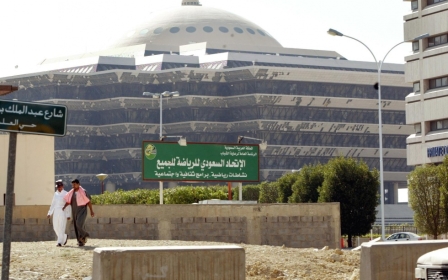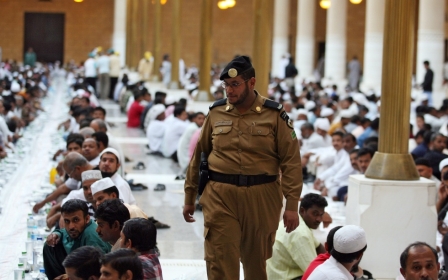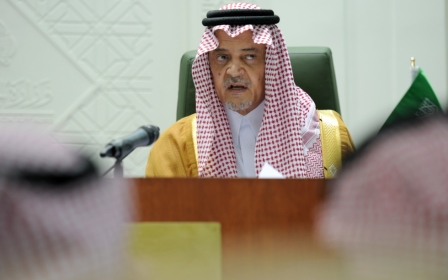Saudi human-rights activist sentenced to 15 years in jail

A Saudi Arabian activist and human rights lawyer has been sentenced to 15 years in jail for “insulting” the authorities.
In a statement posted on twitter, relatives of Waleed Abu al-Khair announced his conviction, which will also see him banned from travelling abroad for 15 years and fined 200,000 riyals ($53,326).
Translation: “A short while ago verdict was passed on the detained human rights activist #WaleedAbulkhair. He is sentenced to 15 years in prison and forbidden from travel for the same amount of time, as well as a 200,000 Riyal fine – a statement will be released today”
Among the accusations facing Khair had been that he had been seeking to undermine the state and insulted the judiciary.
He had been under arrest since April 16, after being on bail for attending meetings of liberal reformists in the country.
In his last address to the court, Al Khair expressed his unwillingness to cooperate with the court due to a “lack of neutrality”.
"Accordingly, I will never respond to the merits of this case and this is my last reply,” he said.
“I ask anyone facing the same, to exonerates the judiciary from things he hates, do not recognize this court and do not cooperate with it.”
“I will be waiting your judgment, which I expect to be so many years in jail, asking god to keep me holding on my pains, bearing the consequences of what I did as he (god) always reward of the reformers.”
Adam Coogle, Saudi researcher for Human Rights Watch, condemned the sentence.
"Waleed Abu al-Khair's harsh sentence shows that Saudi Arabia has no tolerance for those who speak out about human rights and political reform and it will go to any length to silence them," he told AFP.
“He is a prisoner of conscience and must be released immediately and unconditionally,” said Amnesty’s Said Boumedouha.
He said the detention was “a worrying example of how Saudi Arabian authorities are abusing the justice system to silence peaceful dissent.”
Khair had already been sentenced to three months in jail in October for signing a petition in 2011 against the imprisonment of a group reformist activists and “insulting.
The announcement of the conviction provoked outrage on Twitter:
Translation: “Waleed does not deserve this and we do not deserve someone like Waleed defending us. God help him.”
Translation: “Only in my country are human rights activists and reformers imprisoned while Al Qaeda terrorists are set free and religious police thugs are acquitted.”
Translation: “Did you know that a father who rapes and kills his own daughter is sentenced eight years while human rights activists get more than ten years.”
Translation: “ISIS is knocking on our doors, Egypt is exploding in anger, Bahrain is unstable, Kuwait is witnessing civil movements and we are pursuing people and imprisoning them.”
The conviction of Al Khair follows the similar conviction of Raif Badawi, co-founder of the Saudi Arabian Free Liberals website, who was sentenced to 10 years in prison, 1,000 lashes and a $266,000 fine in May.
He was convicted of violating Islamic values and slurring Saudi Arabia’s religious symbols, which drew the ire of Amnesty International who described the ruling as “outrageous”.
Saudi Arabia’s absolute monarchy enacts notoriously strict controls over its citizens, with opposition parties, trade unions and non-Islamic religions all banned in the country.
Earlier in 2014, the government passed a terrorism law defining terror acts as anything that, "disturbs public order, shakes the security of society, or subjects its national unity to danger, or obstructs the primary system of rule or harms the reputation of the state."
Stay informed with MEE's newsletters
Sign up to get the latest alerts, insights and analysis, starting with Turkey Unpacked
Middle East Eye delivers independent and unrivalled coverage and analysis of the Middle East, North Africa and beyond. To learn more about republishing this content and the associated fees, please fill out this form. More about MEE can be found here.




